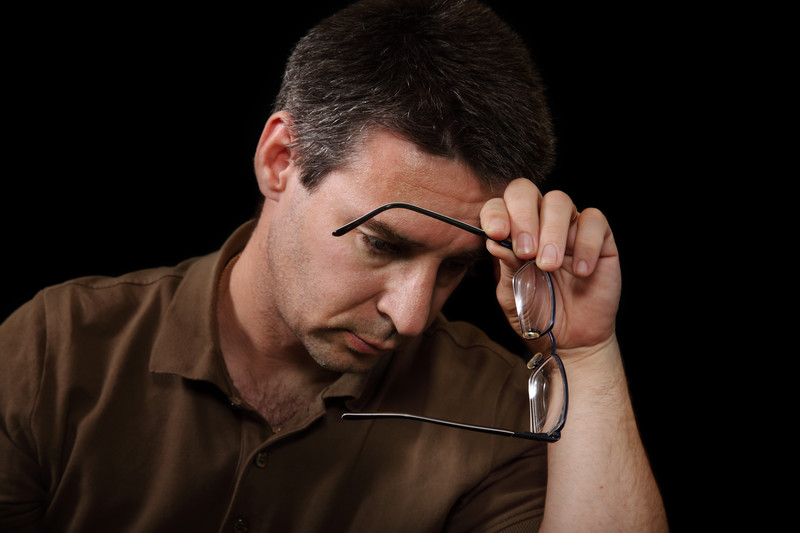Depression may come easily for an aging man as the symptoms of possible testosterone deficiency start effecting his every day routine. The classic symptoms of course are lack of sex drive, muscle weakness or loss of strength, belly fat and obesity, and the inner feelings of loss of vitality and resulting in depression and mood swings.
These are classic symptoms because they have been explored and researched in regard to hormonal deficiency, particularly testosterone deficiency for many decades. So the suspected possible link between testosterone and depression is not a new idea. Doctors and researchers have long been exploring doses and treatment guidelines that could help men with their depression.
Let’s examine two current research studies that address the understanding of the problem of testosterone deficiency and its complexity and how this may relate to you.
A January 2020 study (1) examined current research on the “clinical guidelines recommend (for) testosterone replacement therapy for adult men with late-onset testosterone deficiency, with the goal of improving (depression) symptoms and elevating testosterone levels into the normal reference range. What the research team found was:
Testosterone replacement therapy does reduce depressive symptoms, especially in patients without pretreatment depression (not yet being treated traditional for depression) and that testosterone replacement therapy improves depressive symptoms in most trials (over a broader spectrum patient base), except in patients with major depressive disorder.
There maybe more to this beyond testosterone deficiency
While there is a lot of research making this connection between low testosterone and depression, other studies are examining other factors including testosterone and concurrent mineral deficiencies.
At the Magaziner Center, we treat depression by thoroughly assessing each patient’s physical state and looking for all possible triggers. Because depression has been linked to imbalances of specific neurotransmitters, we use an extremely thorough series of screenings to determine their levels as well as those of key amino acids.
Testosterone and concurrent mineral deficiencies is the focus of a March 2020 study,(2). Here is what the research team wrote:
“Abnormal concentrations of bioelements (magnesium, manganese, chromium, copper, zinc) have been associated with physical and emotional dysfunctions, including depression. This association, however, has not been analyzed in testosterone deficiency syndrome, or patients with depressiveness, i.e., when individual symptoms do not form the picture of a full-syndrome depressive disorder.”
The goal of this research was to determine: “the relationship between concentrations of selected bioelements and the incidence of depressive symptoms in men aged 50 years and older with a concurrent testosterone deficiency syndrome.”
In the study, 314 men with an average age of about 61 had their blood analyzed for magnesium, manganese, chromium), copper, and zinc. The diagnosis of testosterone deficiency syndrome was based on the total testosterone, free testosterone, estradiol (E2), and dehydroepiandrosterone sulfate (DHEAS)
The results were: “Emotional disturbances manifested as depressive symptoms were diagnosed in 28.7% of all participants and testosterone deficiency syndrome in 49.3%. In the testosterone deficiency syndrome group, the analysis showed a significant correlation between the level of manganese and chromium with the incidence of depression.
Conclusions: “The results of our study demonstrated a relationship between manganese and chromium concentrations with the incidence of depression in men aged 50 years and older with a concurrent testosterone deficiency syndrome. This may indicate that there is a correlation between these bioelements, as well as emotional disorders manifested as depressive symptoms in aging men with a diagnosed testosterone deficiency.”
A single focus on one element is not holistically thinking
If a man has symptoms of depression and symptoms of low testosterone, this is a clue that there is an imbalance. However this imbalance, as seen by the research above, can be more complex that the simple supplementation of testosterone.
If you would like to explore more information, please contact our office so we can start a conversation with you.
Below are links to our other articles on depression.
Low Testosterone and Depression
Does Inflammation Cause Breast Cancer? Can Stress Management Stop The Spread?
Sleep Disorders, Heart Disease, and Weight Gain. A Woman’s Problem.
Does Inflammation Cause Breast Cancer? Can Stress Management Stop The Spread?
Low Testosterone and Depression
References
1 Vartolomei MD, Kimura S, Vartolomei L, Shariat SF. Systematic Review of the Impact of Testosterone Replacement Therapy on Depression in Patients with Late-onset Testosterone Deficiency. Eur Urol Focus. 2020;6(1):170–177. doi:10.1016/j.euf.2018.07.006
2 Rotter I, Wiatrak A, Rył A, et al. The Relationship between Selected Bioelements and Depressiveness Associated with Testosterone Deficiency Syndrome in Aging Men. Medicina (Kaunas). 2020;56(3):E125. Published 2020 Mar 13. doi:10.3390/medicina56030125





































Recent Comments